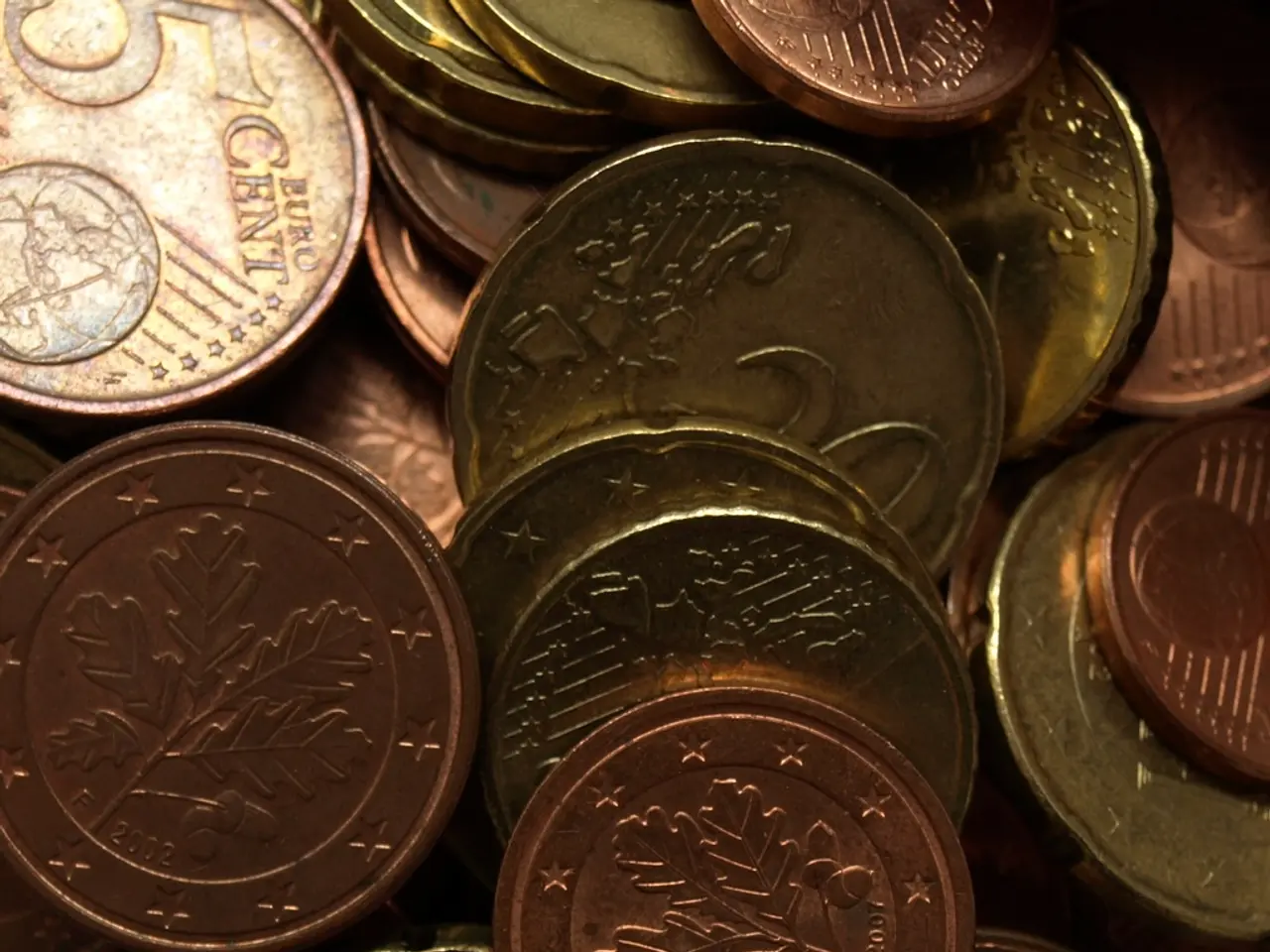Litecoin's Supply Outnumbers Bitcoin's by Fourfold
In the world of cryptocurrencies, two digital assets stand out for their popularity and influence: Bitcoin and Litecoin. While both share similarities, they differ notably in transaction speed, fees, and environmental impact.
Transaction Speed
When it comes to transaction confirmation times, Litecoin takes the lead. With a block time of approximately 2.5 minutes, Litecoin confirms transactions faster than Bitcoin, which requires around 10 minutes per block. This speed difference makes Litecoin more practical for everyday payments, while Bitcoin’s slower speed suits larger or less frequent settlements.
Transaction Fees
Litecoin's transaction fees (~$0.03–$0.04) are significantly lower than those on Bitcoin, which tend to be higher and more volatile due to network congestion. Litecoin’s fees strike a balance between affordability and network security.
Environmental Impact
Both Bitcoin and Litecoin use Proof-of-Work (PoW) mining, but Litecoin’s Scrypt algorithm is designed to be more accessible to a variety of miners and potentially less energy-intensive than Bitcoin’s SHA-256. However, both networks still require substantial electricity, though Litecoin’s faster block times and different mining hardware may lead to some environmental efficiency differences.
Mining Algorithms
Bitcoin relies on SHA-256, which is dominated by ASIC miners, whereas Litecoin’s Scrypt algorithm promotes a more decentralized mining environment by being ASIC-resistant for longer.
Scalability
In terms of transaction capacity, Litecoin supports roughly 56 transactions per second, which is higher than Bitcoin’s ~7 TPS, helping scalability for smaller transactions but still limited compared to some newer networks.
Supply and Demand
Bitcoin has a maximum limit of 21 million coins, while Litecoin has 84 million. This difference in supply can influence the prices of both cryptocurrencies, with scarcer assets potentially having higher prices.
Beyond these differences, both Bitcoin and Litecoin share the mechanism of halving block rewards, which occur approximately every four years. Litecoin's next halving is estimated to take place on July 30, 2027, reducing the estimated block reward to 3,125 LTC.
In summary, Litecoin provides stronger advantages in transaction speed and lower fees, positioning it well for everyday use, while Bitcoin focuses on security, decentralization, and store-of-value properties. Environmental impacts differ primarily due to mining algorithm differences but both still consume significant energy from PoW mining. Consumer and investor confidence, as key factors in the demand for cryptocurrencies, play a significant role in shaping their market value.
[1] Data from various sources, including Litecoin Foundation, Bitcoin.org, and CoinMarketCap.
[2] Data as of March 2023.
Investing in Litecoin could offer faster transaction confirmation times with approximately 2.5 minutes per block compared to Bitcoin's 10 minutes. Additionally, Litecoin's transaction fees, which are roughly between $0.03 and $0.04, are significantly lower than those on Bitcoin. This makes Litecoin more appealing for everyday financing and investing activities that require a speedier transaction speed and lower fees.







